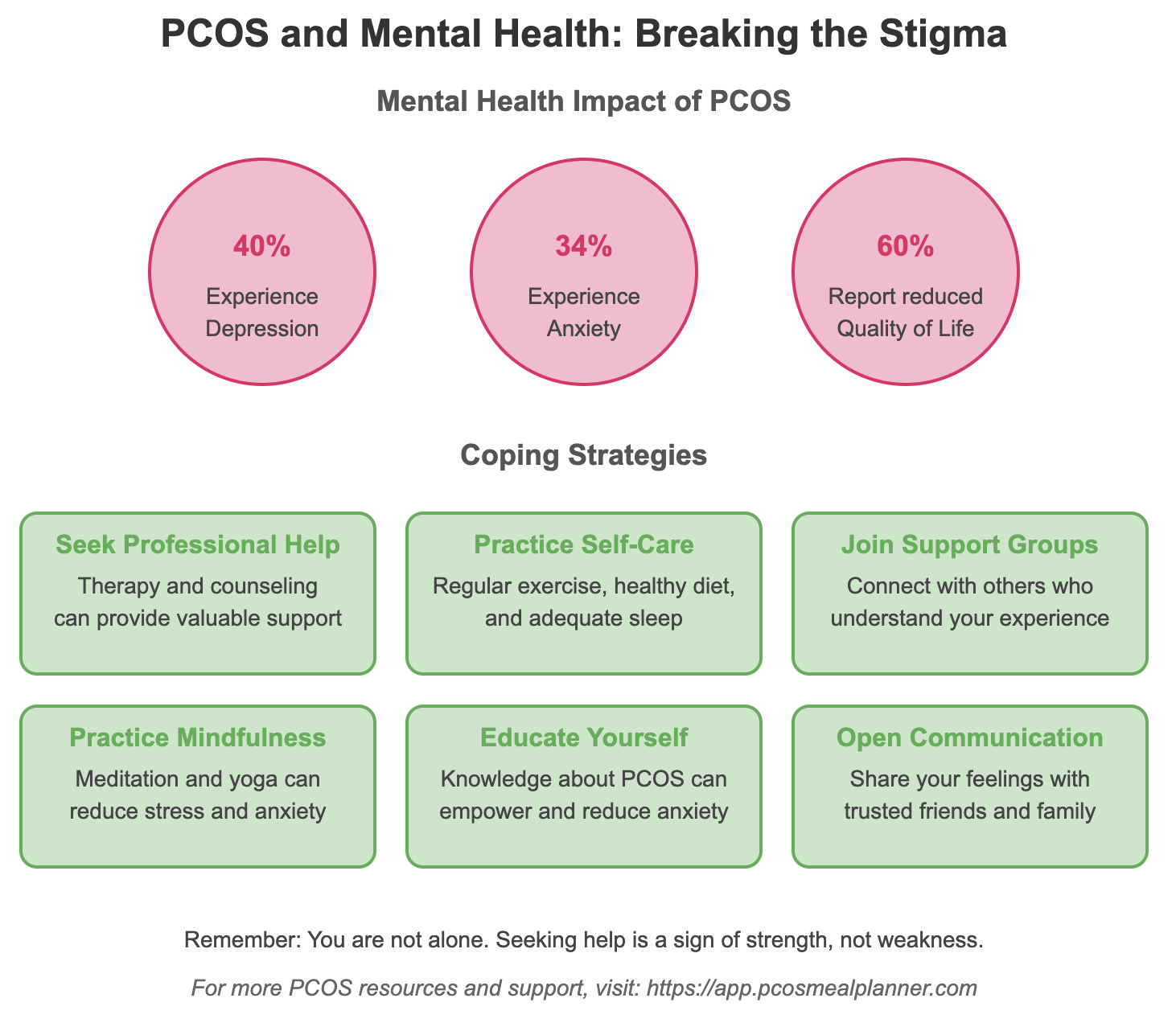Understanding the Mental Health Impact of PCOS: Breaking the Stigma
Polycystic Ovary Syndrome (PCOS) is a complex hormonal disorder that affects many aspects of a woman's health, including mental well-being. This article explores the often-overlooked mental health implications of PCOS and offers strategies for coping and support.
The Mental Health Burden of PCOS
Women with PCOS often face significant mental health challenges:
- Depression: Approximately 40% of women with PCOS experience depression, compared to 7% of the general population.
- Anxiety: About 34% of PCOS patients report anxiety symptoms, versus 18% in women without PCOS.
- Reduced Quality of Life: Up to 60% of women with PCOS report a decreased quality of life due to their condition.
These statistics highlight the need for increased awareness and support for the mental health aspects of PCOS. The connection between PCOS and anxiety is particularly strong and requires attention.
Coping Strategies for PCOS-Related Mental Health Issues
- Seek Professional Help: Don't hesitate to consult a mental health professional. Therapy and counseling can provide valuable support and coping mechanisms.
- Practice Self-Care: Prioritize your physical and mental well-being through regular exercise, a balanced diet, and adequate sleep. These practices can significantly improve mood and overall health.
- Join Support Groups: Connecting with others who understand your experience can be incredibly validating and supportive. Look for local or online PCOS support groups.
- Practice Mindfulness: Techniques like meditation and yoga can help reduce stress and anxiety associated with PCOS. Our article on managing stress with PCOS offers more insights.
- Educate Yourself: Knowledge is power. Understanding PCOS and its effects can help you feel more in control and reduce anxiety about the unknown.
- Open Communication: Share your feelings with trusted friends and family. Open dialogue can help reduce feelings of isolation and build a strong support network.
Breaking the Stigma
It's crucial to recognize that mental health struggles associated with PCOS are real and valid. By openly discussing these challenges, we can work towards breaking the stigma surrounding both PCOS and mental health issues.
Remember, seeking help for mental health concerns is a sign of strength, not weakness. If you're struggling with the emotional aspects of PCOS, don't hesitate to reach out for support.
Conclusion
PCOS is more than just a physical condition; it can have profound effects on mental health. By acknowledging these challenges and implementing coping strategies, women with PCOS can improve their overall well-being and quality of life.
Additional Resources
- Managing PCOS: Mental Health Support Strategies
- PCOS-Friendly Meal Plan Guide
- Exercise for PCOS Management and Hormonal Health
Remember, you're not alone in this journey. With the right support and strategies, it's possible to manage both the physical and mental health aspects of PCOS effectively.

Community Comments
Community Comments
Add a comment